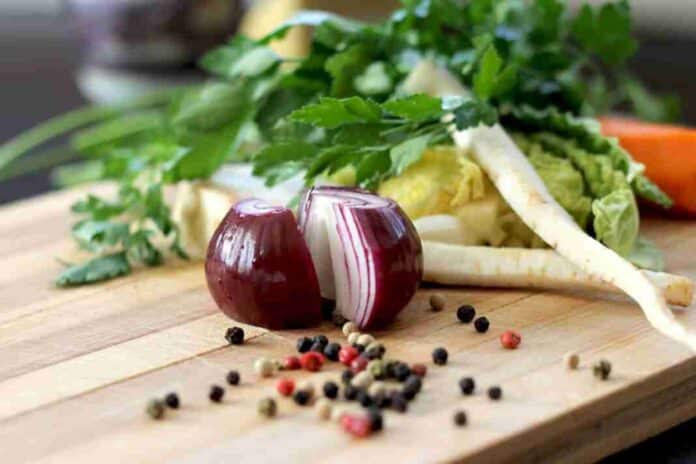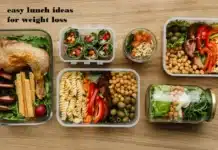Good Breakfast for Fat Loss: A Comprehensive Guide to Fueling Your Day
Achieving fat loss is not only about eating less; it’s also about eating smart. Breakfast is often regarded as the most important meal of the day, and when it comes to weight and fat loss, the quality and timing of your first meal play a significant role. In this article, we will break down the best breakfast options for effective fat loss, explore key nutritional components, and answer frequently asked questions to help you make healthier choices that support your goals.
Table of Contents
| Section | Subtopics |
|---|---|
| 1. Understanding Fat Loss | Importance of Caloric Deficit, Role of Breakfast in Fat Loss |
| 2. Why Breakfast Matters for Fat Loss | Metabolism Boost, Satiety and Hunger Control, Balancing Blood Sugar |
| 3. Key Nutrients for Fat Loss | Protein, Fiber, Healthy Fats, Low-GI Carbohydrates |
| 4. High-Protein Breakfast Options | Eggs, Greek Yogurt, Cottage Cheese, Protein Shakes |
| 5. Fiber-Rich Breakfast Foods | Oatmeal, Chia Seeds, Whole Grain Toast, Vegetables |
| 6. Healthy Fat Choices for Breakfast | Avocado, Nuts, Seeds, Olive Oil |
| 7. Low-Calorie, Low-Glycemic Index Carbohydrates | Berries, Whole Grains, Sweet Potatoes |
| 8. Top Breakfast Recipes for Fat Loss | Scrambled Eggs with Spinach, Greek Yogurt Bowl, Avocado Toast with Egg |
| 9. Best Drinks to Accompany a Fat-Loss Breakfast | Green Tea, Black Coffee, Infused Water |
| 10. The Role of Intermittent Fasting | Benefits, Common Patterns, How It Supports Fat Loss |
| 11. Common Breakfast Mistakes to Avoid | Sugary Cereals, Processed Foods, Skipping Breakfast |
| 12. How to Plan a Balanced Breakfast | Tips for Meal Planning, Preparing Ahead, Creating Balanced Meals |
| 13. Nutritional Myths Around Breakfast and Fat Loss | “Breakfast Boosts Metabolism,” “Carbs Are Bad for Fat Loss” |
| 14. FAQs About Breakfast and Fat Loss | Addressing Popular Questions |
| 15. Conclusion | Summary and Final Tips for Breakfast and Fat Loss |
1. Understanding Fat Loss
To lose fat, you need to consume fewer calories than you burn, known as a caloric deficit. However, fat loss isn’t merely about eating less; it’s also about the nutrient quality of the foods you eat. A good breakfast sets the tone for the day, helping to manage cravings, regulate blood sugar levels, and increase energy. Eating nutrient-dense, low-calorie foods can support your fat loss goals without leaving you feeling deprived or sluggish.
2. Why Breakfast Matters for Fat Loss
Eating breakfast is linked to improved metabolic function, better appetite control, and enhanced cognitive focus, all of which help in creating sustainable fat loss habits. Here’s why breakfast can be beneficial:
- Metabolism Boost: A protein-rich breakfast can boost metabolism through thermogenesis, the energy required to digest, absorb, and process nutrients.
- Satiety and Hunger Control: Breakfast foods high in protein and fiber are digested slowly, helping you stay full and satisfied longer, reducing cravings.
- Balancing Blood Sugar: A balanced breakfast can prevent blood sugar spikes, especially when it contains complex carbs, protein, and fats.
3. Key Nutrients for Fat Loss
Choosing foods with the right nutrients can enhance satiety, promote muscle retention, and improve fat oxidation, making it easier to achieve a caloric deficit.
- Protein: Known to increase satiety and boost metabolism, protein is essential for maintaining muscle mass while losing fat.
- Fiber: Helps control hunger, improves digestion, and is associated with lower calorie intake.
- Healthy Fats: Certain fats, like omega-3s, support brain function and have anti-inflammatory properties that can benefit metabolic health.
- Low-GI Carbohydrates: Low-glycemic index carbs, like oats and sweet potatoes, provide long-lasting energy without causing a blood sugar spike.
4. High-Protein Breakfast Options
Including a good portion of protein at breakfast can curb cravings and reduce calorie intake throughout the day.
- Eggs: Rich in protein and healthy fats, eggs are a versatile option for breakfast. They can be scrambled, boiled, or poached.
- Greek Yogurt: High in protein and low in sugar, Greek yogurt is great for fat loss, especially when topped with berries or nuts.
- Cottage Cheese: Low in fat and high in protein, cottage cheese pairs well with fruits or vegetables.
- Protein Shakes: A convenient option, especially for those on the go, protein shakes can be customized with fruits, leafy greens, and seeds.
5. Fiber-Rich Breakfast Foods
Fiber aids in digestion, regulates blood sugar, and helps you feel full, which is beneficial for fat loss.
- Oatmeal: A classic high-fiber food, oatmeal can be made with water or milk and topped with fruits for additional nutrients.
- Chia Seeds: Packed with fiber and omega-3s, chia seeds are perfect for adding to yogurt, smoothies, or oats.
- Whole Grain Toast: Choose whole-grain or sprouted bread to increase fiber and protein, making it a better option for fat loss.
- Vegetables: Adding spinach, bell peppers, or tomatoes to your eggs or smoothies can enhance fiber content without extra calories.
6. Healthy Fat Choices for Breakfast
Including healthy fats can keep you full and support fat-burning processes.
- Avocado: This creamy fruit is rich in healthy monounsaturated fats, which can increase satiety.
- Nuts: Almonds, walnuts, and pecans contain healthy fats, protein, and fiber, making them ideal as toppings or snacks.
- Seeds: Flaxseeds, chia seeds, and hemp seeds add fiber and omega-3s, enhancing your breakfast’s nutritional profile.
- Olive Oil: Drizzle a small amount over vegetables or eggs for added flavor and healthy fats.
7. Low-Calorie, Low-Glycemic Index Carbohydrates
Low-GI carbs are digested slowly, providing steady energy and reducing fat storage.
- Berries: Blueberries, strawberries, and raspberries are low in sugar, high in fiber, and full of antioxidants.
- Whole Grains: Quinoa, barley, and whole-wheat bread offer fiber and protein while being low in calories.
- Sweet Potatoes: With their low GI, sweet potatoes can be diced and added to breakfast bowls or omelets for extra nutrients.
8. Top Breakfast Recipes for Fat Loss
- Scrambled Eggs with Spinach: High in protein and fiber, scrambled eggs with spinach make a low-calorie, filling meal.
- Greek Yogurt Bowl: Add berries, chia seeds, and a handful of nuts to plain Greek yogurt for a satisfying breakfast.
- Avocado Toast with Egg: Whole-grain toast topped with avocado and a poached egg offers a balance of protein, fat, and fiber.
- Chia Seed Pudding: Made with almond or coconut milk and topped with fruits, this pudding is a fiber-rich option that’s easy to prepare in advance.
9. Best Drinks to Accompany a Fat-Loss Breakfast
What you drink in the morning can also affect your metabolism, hunger levels, and overall health.
- Green Tea: Contains catechins, antioxidants that may boost metabolism.
- Black Coffee: Black coffee is low in calories and can enhance fat burning when consumed before exercise.
- Infused Water: Add lemon, mint, or cucumber to water for a refreshing, calorie-free drink.
10. The Role of Intermittent Fasting
Intermittent fasting involves eating within a specific time window, like the popular 16:8 method. This can be helpful for fat loss as it restricts the eating window, naturally reducing calorie intake.
11. Common Breakfast Mistakes to Avoid
Avoid these pitfalls to ensure your breakfast supports your fat-loss goals:
- Sugary Cereals: High in sugar and low in nutrients, cereals can lead to sugar crashes and cravings.
- Processed Foods: Foods like pastries and breakfast bars are often high in calories and unhealthy fats.
- Skipping Breakfast: Skipping breakfast can lead to overeating later in the day, sabotaging your fat-loss efforts.
12. How to Plan a Balanced Breakfast
Planning your breakfast in advance can help you stay on track with your fat-loss goals. Choose whole foods, balance your macros, and include at least one source each of protein, fat, fiber, and carbohydrates.
13. Nutritional Myths Around Breakfast and Fat Loss
There are many myths surrounding breakfast and fat loss. For example, some believe that breakfast alone can “boost” metabolism significantly, but while it does kickstart metabolism, it doesn’t have a magic effect. Similarly, eating carbs in the morning won’t hinder fat loss, especially if they are low-GI and fiber-rich.
14. FAQs About Breakfast and Fat Loss
Q1: Is it necessary to eat breakfast for fat loss?
A: No, it’s not necessary, but breakfast can help manage hunger and reduce cravings throughout the day.
**Q2: Can I eat carbs for breakfast if I want to
lose fat?**
A: Yes, carbs with a low GI, like oats or sweet potatoes, provide energy without spiking blood sugar.
Q3: How much protein should I aim for at breakfast?
A: Aim for at least 15–25 grams of protein to increase satiety and preserve muscle.
Q4: Is intermittent fasting better than eating breakfast for fat loss?
A: It depends on personal preference. Both methods can support fat loss if done consistently with a caloric deficit.
Q5: Are smoothies good for a fat-loss breakfast?
A: Yes, if they are made with low-calorie, high-nutrient ingredients like greens, protein powder, and fiber-rich fruits.
Q6: How can I make my breakfast last until lunch?
A: Combine protein, fiber, and healthy fats to increase satiety, like an egg and avocado combo on whole-grain toast.
15. Conclusion
Choosing a nutrient-dense, balanced breakfast can support your fat-loss goals, help you feel satisfied, and set a positive tone for the day. Focus on whole foods, avoid processed options, and balance protein, fats, and fiber. With a bit of planning, your breakfast can be a powerful tool in your fat-loss journey.



